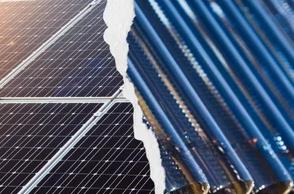Need to Replace Solar Panels? How Often?
As the sun rises, casting its energy upon roofs adorned with solar panels, the question of longevity and replacement cycles looms large for many homeowners and businesses. Solar technology has made leaps and bounds, offering a cleaner, more sustainable form of energy. Yet, the question remains: How often do you need to replace solar panels? Let’s dive into the facts, armed with confidence and the precision of American pragmatism.

The Lifespan of Solar Panels: Built to Last
Solar panels are not a purchase; they're an investment. Most panels on the market today boast a lifespan of 25 to 30 years, backed by warranties that guarantee performance. However, "lifespan" doesn't mean the panels stop working after 30 years; it means their efficiency decreases to about 80% of their original capacity. This gradual decline in efficiency, typically around 0.5% to 1% per year, is a testament to the resilience of solar technology.
Physical Damage: The Unexpected Variable
Despite their durability, solar panels can fall victim to the wrath of nature. Hail, severe storms, or even accidental damage can compromise their integrity. Visible signs of damage such as cracks or discoloration are clear indicators that the panel's performance might be hindered. Regular inspections can catch these issues early, potentially saving you from a sudden need for replacement.
Technological Advancements: An Opportunity for Upgrade
The solar industry is on the fast track, with new advancements rolling out continually. Today’s panels are more efficient, durable, and aesthetically pleasing than those from a decade ago. Upgrading to newer models can not only improve your energy production but also increase the value of your property.
Monitoring and Maintenance: Key to Longevity
Keeping an eye on your system’s performance is crucial. A significant drop in energy output can indicate it's time for a closer examination. Moreover, regular maintenance—such as cleaning the panels and ensuring they're free from obstructions—can extend their life and efficiency.
How often do you need to replace solar panels? This question does not have a one-size-fits-all answer. The need for replacement depends on several factors, including efficiency loss, physical damage, and the potential benefits of newer technology. It's about balancing the cost of new panels against the gains in efficiency and energy production.
Deciding to Replace: A Calculated Choice
The decision to replace your solar panels should come after careful consideration. If your panels are nearing the end of their warranty period, showing signs of significant wear, or if you're experiencing a noticeable decrease in energy output, it might be time to consider an upgrade. Keep in mind, newer models can offer improved performance, potentially saving you money in the long run.
Embracing the Solar Journey
Solar panels offer a sustainable, clean source of energy, but they're not set-and-forget solutions. Understanding their lifespan, maintaining them properly, and staying informed about technological advancements will help you make the most of your investment. Solar energy is a journey, one that evolves with each sunrise, and with the right care, your panels can continue to harness the sun's power for decades to come.